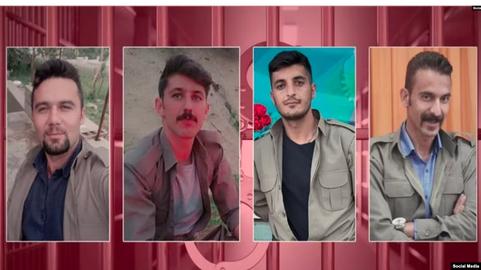Kurdistan: NGOs and opposition launch strike against Iranian executions
A protest linked to the death sentence carried out yesterday on four Kurdish prisoners. Activists call the Islamic Republic a "repression machine" that is working "full steam ahead" and with "brutal methods". Meanwhile, the Supreme Court confirmed the death penalty for six more political prisoners.
Tehran (AsiaNews) - This morning seven Iranian organizations active in the defense of human rights and an opposition party proclaimed a general strike with abstention from work throughout the western province of Kurdistan, in response to the execution of four prisoners linked to the minority.
The executions against the Kurdish population in the area "have intensified", the activist NGOs say in a joint note, while "the stain of repression of the Islamic Republic of Iran is working at full capacity".
The Iranian government is "executing young people with brutal methods, repressing the people of Kurdistan and suffocating their search for freedom", continues the statement of the movements that launched the general protest.
The document refers in particular to the execution, which took place yesterday, of four members of the local Komala party, the result of grossly unfair trials, and to the confirmation of the death sentence of six other political prisoners by the Supreme Court in Tehran.
The aim of the general strike is to draw national and international attention to the terrible human rights situation in Kurdistan and in a last-ditch attempt to avoid further recourse by the ayatollahs to the executioner.
Meanwhile Abdulla Mohtadi, general secretary of the Komala Party of Iranian Kurdistan, has also launched a general mobilization of the political organization starting today.
“Tomorrow, numerous parties, civil organizations and human rights institutions in Kurdistan will observe a day of strike and public holiday tomorrow,” the political leader wrote on his X (formerly Twitter) profile.
“This initiative – he adds – will serve as a tribute to the fallen comrades and as a collective protest against the massacre”.
Last week, dozens of female prisoners locked up in Evin prison in Tehran also started a protest against the death penalty, including Nobel Peace Prize winner Narges Mohammadi.
Their hunger strike that also constitutes an act of defiance , and resistance, towards the Islamic Republic and the increasingly frequent use of the executioner, linked to the execution of Mohammad Ghobadlou, a young man with mental problems convicted among the protests for Mahsa Amini.
Coupled to this is the condition of hundreds of other prisoners on death row, in a context of increasing use of the executioner by the ayatollahs.
In recent years, international movements and activist groups have repeatedly accused the regime of using the death penalty as a tool to repress any form of dissent, as happened in the case of Amini or for (specious) accusations of pro-Israel "espionage".
In 2023, the Oslo-based NGO Iran Human Rights has recorded a record of 604 capital executions, while Hrana activists speak of at least 746 victims; for the year that has just begun, the Norwegian group has already documented over 50 cases of executed prisoners.
In the ranking of the nations that most use the executioner, the Islamic Republic is second only behind China - which has not released official statistics on executions for some time - and in the last period has recorded an escalation of executions among members of the Kurdish minority.
27/09/2022 13:52







.png)










